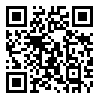مجله رویش روانشناسی از دادن گواهیهای کاغذی معذور است. لطفا تقاضا نکنید. همه گواهی ها در صفحه شخصی کاربران موجود است.
year 14, Issue 6 (summer 2025 2025)
Rooyesh 2025, 14(6): 191-200 |
Back to browse issues page
Ethics code: IR.IAU.TON.REC.1403.013
Download citation:
BibTeX | RIS | EndNote | Medlars | ProCite | Reference Manager | RefWorks
Send citation to:



BibTeX | RIS | EndNote | Medlars | ProCite | Reference Manager | RefWorks
Send citation to:
Shirinkam M S, Hamzepoor Haghighi T, Pirkhaefi A. (2025). The Effectiveness of Cognitive-Behavioral Couple Therapy on Dysfunctional Communication Patterns and Relationship Beliefs in Conflicting Couples. Rooyesh. 14(6), 191-200.
URL: http://frooyesh.ir/article-1-6218-en.html
URL: http://frooyesh.ir/article-1-6218-en.html
1- Department of Counseling, To.C., Islamic Azad University, Tonekabon, Iran.
2- Department of Psychology, La.C., Islamic Azad University, Lahijan, Iran. ,hamzehpoor.tahereh@iau.ir
3- Department of Clinical Psychology, Ga.C., Islamic Azad University, Garmsar, Iran.
2- Department of Psychology, La.C., Islamic Azad University, Lahijan, Iran. ,
3- Department of Clinical Psychology, Ga.C., Islamic Azad University, Garmsar, Iran.
Abstract: (769 Views)
The present study aimed to determine the effectiveness of cognitive-behavioral couples therapy on dysfunctional communication patterns and communication beliefs of conflicted couples. The research method was quasi-experimental with a pre-test, post-test design, and a control group, including a 2-month follow-up phase. The statistical population consisted of couples who referred to the counseling and psychological services centers of Misagh and Afaq in Rasht city in 2023-2024. Using purposive sampling, 34 couples were selected and randomly assigned into experimental (17 couples) and control (17 couples) groups. The research tools included the Marital Conflict Questionnaire (MCQ; Sanaei & Barati, 2000), Communication Patterns Questionnaire (CPQ; Christensen & Sullaway, 1984), and Relationship Beliefs Inventory (RBI; Eidelson & Epstein, 1982). The experimental group underwent eight 90-minute sessions of cognitive-behavioral couples therapy. Data were analyzed using repeated measures ANOVA. The findings showed significant differences between the pre-test and post-test scores of dysfunctional communication patterns and communication beliefs in both experimental and control groups at the 0.001 significance level. Moreover, there was no significant difference between the post-test and follow-up means in the experimental group at the 0.001 level, indicating that the results were maintained during the follow-up period. Based on these findings, it can be concluded that cognitive-behavioral couples therapy is an effective intervention method for reducing dysfunctional communication patterns and communication beliefs in conflicted couples.
Keywords: Relationship Beliefs, Dysfunctional Communication Patterns, Marital Conflict, Cognitive-Behavioral Couple Therapy.
Type of Article: Research |
Subject:
counseling
Received: 2025/04/27 | Accepted: 2025/08/12 | ePublished: 2025/08/28
Received: 2025/04/27 | Accepted: 2025/08/12 | ePublished: 2025/08/28
Send email to the article author
| Rights and permissions | |
 |
This work is licensed under a Creative Commons Attribution-NonCommercial 4.0 International License. |





